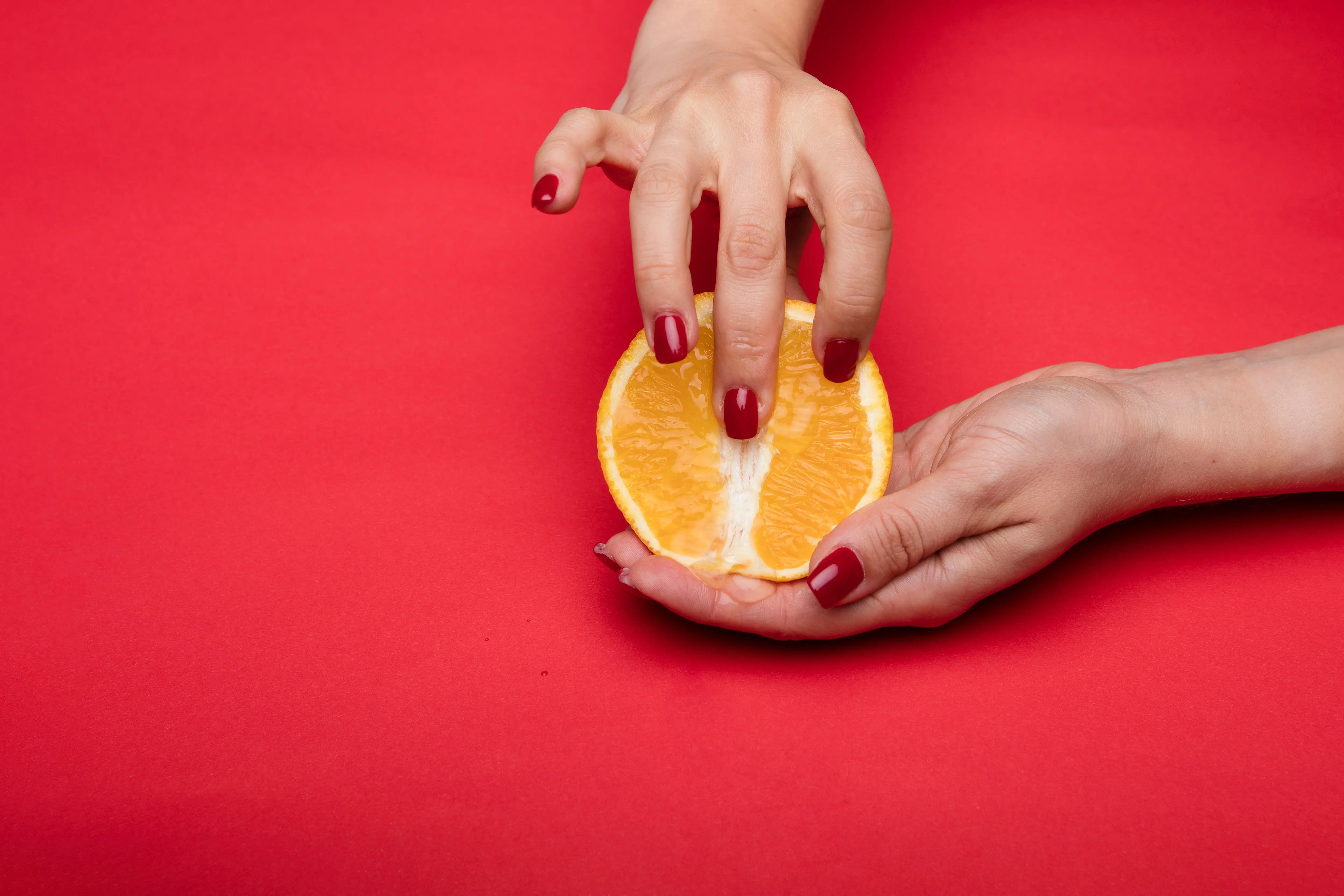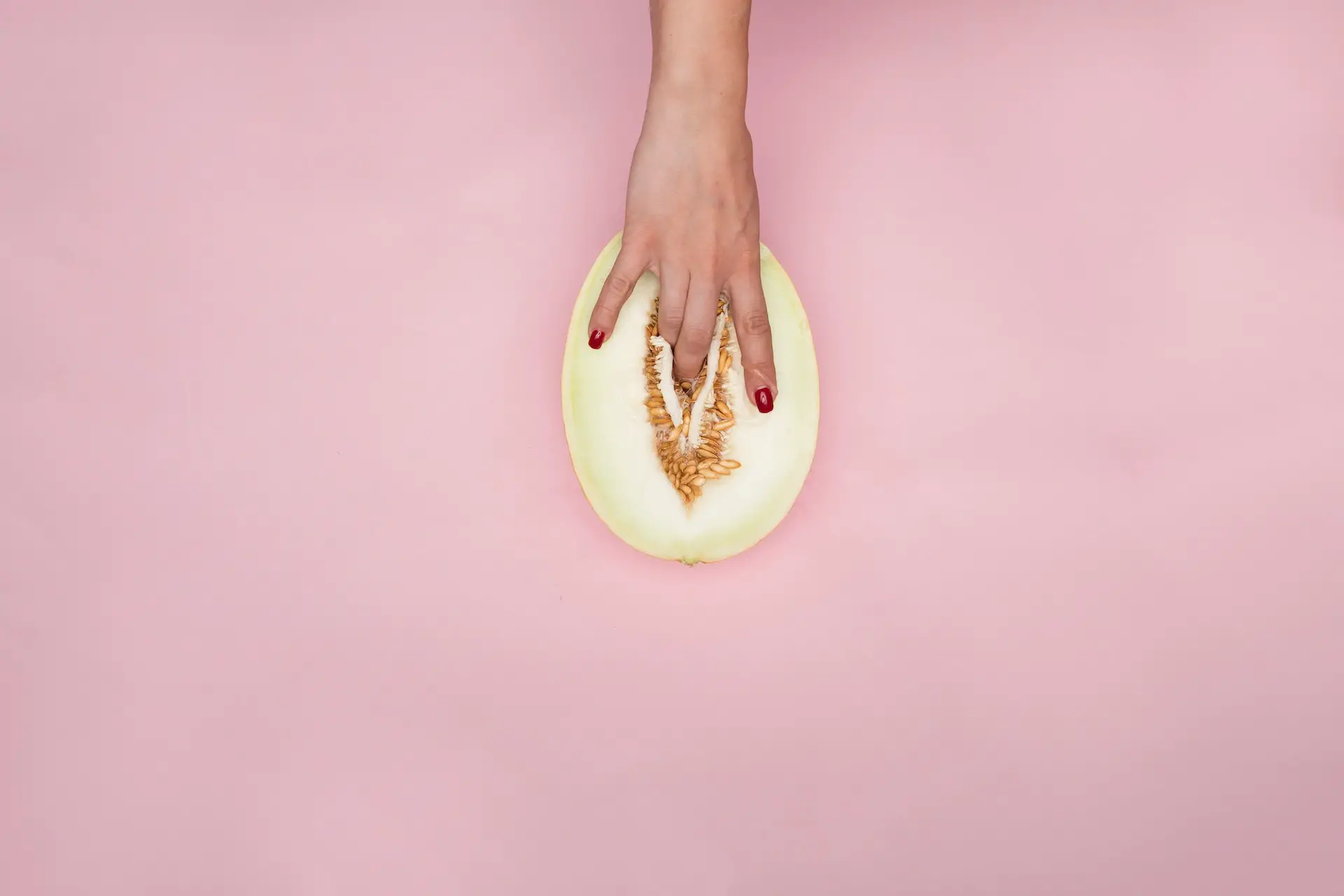As a BetterHelp affiliate, we receive compensation from BetterHelp if you purchase products or services through the links provided
Masturbation is a normal and healthy part of human sexuality, yet many people experience feelings of guilt and shame after engaging in this self-pleasuring act. This feeling of guilt could stem from cultural or religious beliefs, societal norms, or even misinformation. Understanding the reasons behind the guilt and shedding these misconceptions can lead to a healthier relationship with oneself and improve overall sexual health.
It’s important to recognize that masturbation has numerous benefits, such as stress relief, improved sleep, and enhanced sexual pleasure. However, societal and cultural influences have led some to view it as a taboo or morally wrong activity. Religion and tradition can also play a significant role in the way individuals perceive masturbation, often instilling feelings of guilt and shame despite its many benefits.
The key to addressing and overcoming feelings of guilt associated with masturbation lies in debunking myths surrounding it, promoting sex-positive education, and understanding hormones and neurotransmitters’ role in one’s overall well-being. Through education, self-exploration, and open-mindedness, individuals can overcome their guilt and anxiety and embrace a healthy sexual life.
Key Takeaways
- Feelings of guilt after masturbation can stem from cultural, religious, or societal beliefs.
- Numerous benefits to engaging in self-pleasure include stress relief, improved sleep, and enhanced sexual pleasure.
- Overcoming guilt associated with masturbation involves debunking myths, promoting sex-positive education, and understanding hormonal and neurotransmitter balance in sexual health.

Understanding Guilt and Masturbation
Masturbation is a natural, normal, and healthy part of human sexuality. It’s a common practice for both men and women. However, despite its numerous health benefits, many individuals might occasionally experience feelings of guilt after masturbating. Let’s explore the reasons behind this unsettling emotion.
First and foremost, cultural and religious beliefs play a significant role in shaping our perceptions of self-pleasure. In some cultures or religions, masturbation might be considered sinful or morally wrong. These beliefs may have been deeply ingrained since childhood, so guilt might come as a natural reaction after engaging in self-pleasure. It’s essential to recognize that cultural influences may be the root cause of guilt associated with masturbation.
Furthermore, societal expectations regarding sex and sexuality can impact how we view masturbation. People may feel pressured to conform to certain norms, such as getting married or having children. Consequently, one might feel guilt from masturbating due to a sense of “deviating” from these expectations. It’s crucial to understand that everyone’s sexual journey is distinct, and embracing your individual experiences is vital to achieving a healthy sex life.
Another factor contributing to guilt after masturbation is the potential formation of negative habits. Occasionally, people may use masturbation to cope with stress, loneliness, or boredom. While masturbation itself isn’t inherently harmful, it can become an issue if it starts interfering with daily life, relationships, and overall well-being. In such cases, reflecting on the reasons behind frequent reliance on self-pleasure and seeking healthier alternatives can alleviate guilt and improve overall balance in life.
In conclusion, guilt after masturbation can arise from various sources, including cultural and religious beliefs, societal expectations, and personal habits. It’s important to recognize these influences and work on addressing them without compromising your sexual well-being. Remember, masturbation is a natural part of human sexuality, and embracing it with a balanced and open mindset can lead to a healthier, guilt-free experience.

Benefits and Misconceptions
Masturbation can often be shrouded in myths and misconceptions, making individuals feel guilty or ashamed. However, it’s essential to understand the health benefits and debunk common misconceptions.
First, let’s talk about the benefits. Masturbation releases feel-good hormones called endorphins, which can help improve sleep and reduce stress. Additionally, it can effectively explore one’s body and understand sexual preferences, leading to better sexual experiences with partners. It’s also perfectly normal and healthy to have orgasms through self-pleasure.
However, some people may think that masturbating is harmful or unhealthy. This could stem from cultural or religious beliefs or even misinformation spread through society. Let’s dispel some of these misconceptions:
- Masturbation is not sinful or immoral: Individuals may feel guilty due to various cultural, religious, or moral beliefs, but in reality, self-pleasure is a natural and healthy act. It’s essential to respect everyone’s beliefs and choices but not to perpetuate unfounded guilt and shame.
- It does not cause health problems: Contrary to myths, masturbation does not cause blindness, infertility, or any other severe health issues. Regular orgasms can have numerous health benefits, such as improving cognitive function and reducing the likelihood of some medical conditions.
- Masturbation is not a substitute for sex: Some may believe indulging in self-pleasure means neglecting intimate relationships or losing interest in partnered sex. However, self-discovery through masturbation can improve sexual experiences in relationships as individuals learn about their bodies and desires.
So, it’s crucial to recognize that guilt after masturbation is often misplaced and unfounded. By understanding the benefits, dispelling misconceptions, and taking a neutral viewpoint, individuals can make more informed choices, enjoy self-pleasure, and maintain a balanced, healthy approach to their sexuality.

The Role of Religion and Tradition
The Bible and Onan
The story of Onan in the Bible has long been a source of confusion and guilt for those who engage in masturbation. Sheesh, imagine how Onan must’ve felt! The tale goes like this: Onan was asked by God to impregnate his deceased brother’s wife, but instead, he “spilled his seed” to prevent conception. God was displeased with his actions, leading to his demise. Many religious individuals have interpreted this as a clear condemnation of masturbation, viewing it as sinful.
Modern Bible Experts’ Perspective
Gosh, times have changed, and so have the interpretations! Some contemporary Bible scholars argue that the story of Onan should not be taken solely as a statement against masturbation. Rather, they suggest that his sin may have been directly related to his disobedience to God and his duty towards his family.
Many religious leaders today have chilled out quite a bit on this issue. They acknowledge that masturbation, though not explicitly mentioned in the Bible as sinful, is a topic left open for personal interpretation and decision-making. However, others still believe that self-pleasure erodes a person’s spiritual integrity.
Spiritual Masturbation
While the religious community may have varying perspectives on masturbation, some believers have started to embrace the concept of spiritual masturbation. This approach tries to separate the self-pleasuring act from a sinful context, instead framing it as a way to nurture self-love, acceptance, and spiritual growth.
To sum it up, religion and tradition have undoubtedly played a big role in shaping people’s attitudes towards masturbation – sometimes labeling it sinful and evoking guilt. However, if we carefully navigate through words of wisdom and ever-evolving perspectives, we might find ourselves a happy, guilt-free medium.
Society and Culture’s Impact
It’s quite natural to feel guilty after masturbation, particularly when society and culture play such a powerful role in shaping our values and attitudes toward human sexuality. Time and again, cultural norms have stigmatized this natural act, often branding it as a taboo or associating it with shame.
Cultures around the world tend to view sexual pleasure as something reserved for committed relationships or even only within the bounds of marriage. This belief system can contribute to an overwhelming sense of guilt when an individual indulges in self-pleasure, as it’s perceived as breaking the unwritten rules imposed by society.
In many instances, silence is the go-to reaction when it comes to discussing the topic of masturbation. This lack of open conversation perpetuates the misconception that self-pleasure is something to be ashamed of, intensifying feelings of self-doubt and hesitation. Additionally, this silence makes it difficult for individuals, particularly adolescents, to access accurate knowledge about sexual health and their bodies.
When internalized, the shame associated with masturbation can lead to a decline in self-esteem. It’s not uncommon for people to have thoughts like “I’m weak-willed” or “I shouldn’t be doing this” after a moment of self-pleasure. However, it’s essential to recognize that these negative thoughts result from societal pressures and do not reflect the normalcy of the act itself.
Understanding the complexities of human sexuality is crucial to demystify these cultural stigmas and helping individuals realize that there is nothing inherently shameful or wrong in exploring one’s body. In fact, masturbation has numerous physical and psychological benefits, such as reducing stress and promoting a healthy self-image.
As understanding and knowledge of human sexuality continue evolving, society must break free from the shackles of age-old taboos and embrace healthy conversations. Only then can individuals fully appreciate and enjoy their bodies without guilt.
Debunking Masturbation Myths
Physical Consequences
Let’s face it – masturbation can be a touchy subject, surrounded by myths and misunderstandings. For instance, there’s no connection between masturbation and warts or acne. These skin issues are mostly related to hormonal changes or bacterial infections.
What about hair? You might have heard the old wives’ tale that masturbation causes excessive hair growth or loss. Rest assured; this is nothing more than a myth. Masturbation doesn’t affect hair growth or hair health at all.
Feeling blindsided by the belief that masturbation leads to blindness? Don’t worry; there is no scientific basis to back up this ridiculous claim. Your vision remains unaltered by masturbation.
Rumors have also spread about the link between masturbation and infertility. Breathe easy – there is no connection! Many reproductive health specialists even recommend masturbation as part of a healthy sexual lifestyle.
Mental Disorders
Some people may feel guilty after indulging in self-pleasure, leading them to believe that they might suffer from mental disorders. Well, the truth is quite the opposite – numerous studies have shown that masturbation can help reduce stress, and improve mood and overall mental well-being.
So, why does guilt persist? It could be attributed to outdated social and cultural beliefs, but it’s essential to understand that masturbation is normal and healthy. It’s all about embracing one’s body and enjoying oneself. After all, self-exploration is a human experience worth cherishing.
In conclusion, let’s dispel these myths and continue to educate ourselves about the benefits of masturbation while debunking the falsehoods that have been passed down through generations. Empower yourself with the knowledge that self-pleasure is free of the absurd physical and mental consequences that have been wrongly associated with it.
Sexual Health and Pleasure
Maintaining a healthy relationship with our bodies and sexuality is crucial for overall well-being. Let’s delve into the world of self-pleasure and its impact on the sexual health of women and the application of cognitive distractions in sex therapy.
Female Masturbation
Ah, the joy of self-exploration! Female masturbation is often shrouded in mystery, but it’s essential to a woman’s sexual health. You see, the clitoris, a highly sensitive organ, plays a key role in self-pleasure and sexual response. Did you know that the clitoris has about 8,000 nerve endings? No wonder it holds the key to sexual pleasure for many women!
Engaging in regular self-pleasure not only promotes a better understanding of one’s own body but also helps improve sexual function. By exploring their bodies, women can discover what brings them the most pleasure and how to achieve sexual satisfaction. Additionally, masturbating can be a great way to reduce stress and improve overall mood. So, it’s high time we embrace the art of self-loving – guilt-free!
Cognitive Distractions in Sex Therapy
On to sex therapy, where cognitive distractions have proven surprisingly useful. Some individuals experience sexual dysfunction, which could stem from guilt, shame, and anxiety associated with self-pleasure or sex. In these cases, sex therapists use cognitive distractions to redirect focus from these negative thoughts during intimate moments.
Cognitive distractions include mindfulness exercises, deep breathing, and focusing on pleasurable sensations rather than stressful thoughts or performance fears. By doing so, folks can better stay in the moment and enjoy the experience. This can ultimately help improve sexual function and satisfaction.
So, the takeaway? Let’s encourage open conversations about self-pleasure and embrace sexuality as vital to our overall well-being. No more guilt, just pure and unadulterated joy!
Dealing with Guilt and Anxiety
It is astounding how natural feelings of guilt and anxiety can sneak up on someone after masturbation. It’s essential to understand that these emotions aren’t unusual, and there are ways to manage them to maintain a healthy relationship with oneself.
Firstly, it’s important to recognize that masturbation is normal for many individuals, regardless of their relationship status. Embrace the fact that it’s a perfectly healthy way to explore one’s sexual desires and understand one’s own body. By acknowledging this, it becomes easier to let go of any fear or embarrassment that arises.
Don’t be afraid to seek therapy or counseling when guilt and anxiety persist. A knowledgeable professional can assist in exploring underlying issues that contribute to these emotions and guide someone toward self-acceptance. They can offer practical coping strategies, ensuring that guilt doesn’t overshadow the benefits of self-pleasure.
Open communication with one’s partner, if there is one, can also prove invaluable when dealing with guilt related to masturbation. Sharing thoughts and feelings with someone you trust helps to normalize the subject and create mutual understanding. It can alleviate the pressure to suppress sexual desires, ultimately enhancing emotional and sexual intimacy within the relationship.
Moreover, practicing mindfulness meditation is an efficient way to manage anxiety and distress. It encourages self-compassion and promotes staying in the present moment, reducing negative thoughts and emotions. By incorporating a daily meditation routine, people can cultivate a healthier mindset and gain control over unwarranted feelings of guilt.
In conclusion, coping with guilt and anxiety after masturbation can be achieved through various methods, including self-acceptance, seeking professional help, open communication with a partner, and practicing mindfulness. Remember that everyone’s journey is unique, and finding the right balance for oneself is crucial to maintaining a strong sense of self-worth and mental well-being.
Treatment and Coping Strategies
Feeling guilty after masturbation can be frustrating and disheartening, but don’t despair! There are plenty of ways to overcome this emotional hurdle. With the right mindset and approach, anyone can embrace their sexuality without feeling ashamed.
First and foremost, it’s important to remember that masturbation is a normal and healthy activity. It’s a natural part of sexual exploration, and many therapists today agree that there is no shame in engaging in it. Taking this knowledge to the heart can make it easier to accept any guilt or unease that follows.
Sometimes, cognitive distractions can be an effective coping strategy for such guilt. Focusing on positive aspects of life, such as hobbies or friendships, can reframe their thoughts and pull them out of a negative spiral. Moreover, engaging in physical activities like yoga, meditation, or exercise can help release endorphins, which boost mood and improve overall well-being.
In cases where guilt is persistent and overwhelming, it might be helpful to seek professional help from a therapist who specializes in sex therapy. These specialists are equipped with knowledge and tools to not only address a variety of sexual issues but also tackle the emotional aspects that often come with them. Therapy sessions can provide a safe, non-judgmental space to discuss feelings of guilt and apprehension and work on understanding the root of these emotions.
Lastly, open communication can play a vital role in overcoming guilt after masturbation. By discussing this topic with trusted friends, partners, or healthcare professionals, one can better understand that they are not alone in their struggles. This support—shared experiences and understanding—can help someone feel validated in their emotions, eventually allowing them to make peace with their feelings.
Addressing guilt surrounding masturbation doesn’t have to be daunting. With the right mindset, coping strategies, and help, anyone can accept and embrace this natural part of sexuality. Stay confident, stay knowledgeable, and remember—self-love isn’t something to be ashamed of!
Understanding Hormones and Neurotransmitters
Ah, hormones and neurotransmitters are a bit like the conductor and orchestra of our bodies, working in harmony to create the music of our emotions. Regarding guilt after masturbation, it’s important to recognize the key players involved: serotonin, endorphins, and prolactin.
Now, let’s dive in and try to make sense of this hormonal roller coaster. Serotonin is a neurotransmitter known for regulating mood, happiness, and well-being. In the heat of the moment – during sexual arousal and orgasm – serotonin levels rise, giving us a sense of pleasure and satisfaction. However, as we all know, what goes up must come down. After orgasm, these levels drop, potentially making us feel a bit deflated or guilty.
Just like serotonin, endorphins also contribute to our pleasure and well-being. Released during arousal and orgasm, these natural “feel-good” chemicals act as our body’s painkillers, masking physical discomfort and providing euphoria. Still, after the show is over, endorphin levels also return to normal, potentially contributing to the emotional downturn.
It doesn’t end there, though! Enter prolactin, a hormone with a knack for crashing the party. This little culprit, released after orgasm in both men and women, is known to counteract the effects of dopamine – another neurotransmitter associated with pleasure and reward. So, while serotonin and endorphin levels are dropping post-orgasm, prolactin makes its grand entrance, further dampening the sense of pleasure, and voila, you have a guilt-inducing cocktail!
Understanding the hormonal orchestra at play makes it easier to see that these feelings of guilt or remorse aren’t a reflection of our actions but our bodies natural response to the ebb and flow of hormones and neurotransmitters. So next time you feel guilty after some solo time, remember it’s just your hormones playing their usual tune.
Balancing Self-Indulgence
It’s natural to want some moments of solitude and pleasure, but sometimes the guilt can strike after indulging in self-induced orgasms. It’s important to balance self-indulgence and self-awareness to maintain a healthy relationship with oneself.
Regarding masturbation, one could argue that the act is about focusing on one’s own needs and pleasures. Some people might struggle with this focus on self as it can feel egotistical or selfish. However, it’s crucial to remember that taking care of one’s sexual health is just as important as tending to any other aspect of well-being.
Now, excessive masturbation may lead to feelings of guilt due to a sense of becoming addicted to the act. Like any other addiction, falling into a repetitious cycle can dampen the experience and one’s emotional state. Moderation is the key, as it leaves room for a healthy sexual life without causing depression or other mental health concerns.
In some cases, these feelings of guilt might stem from societal or cultural beliefs which label self-pleasure as taboo, unnatural, or sinful. To combat this, one must develop a sense of understanding and acceptance regarding one’s sexual needs and desires.
In conclusion, striking that perfect balance between self-indulgence and self-awareness is essential to maintaining a healthy relationship with one’s body. Stay attentive to emotional responses and remember that, just like anything else, moderation is the key to avoiding any negative impact on mental well-being.
Final Thoughts
Feeling guilty after masturbation might stem from the influence of authority figures, who may have perpetuated the belief that it’s an unhealthy practice. On the contrary, masturbation is a normal activity with various health benefits.
Whenever you’re feeling guilty, remind yourself that health experts consider masturbation a beneficial practice, offering both physical and mental rewards. It can improve mood, relieve stress, enhance sleep quality, and promote a healthy sex life.
Additionally, it’s crucial to remain confident and knowledgeable about your body and its needs. A clear understanding of the natural aspects of self-pleasuring can help dispel any guilt or shame you might be experiencing.
In some cases, guilt may arise from underlying issues unrelated to masturbation. If guilt persists and affects your well-being, consider consulting a healthcare professional. They can suggest therapy, medications, or other treatments tailored to suit your needs.
Ultimately, reframing your perspective on masturbation as a healthy and normal activity will strengthen your confidence and self-awareness. Thus, alleviating guilt and promoting a healthier relationship with your body. Let’s embrace this natural self-exploration journey without fear or shame.
Frequently Asked Questions
Why do I experience guilt following self-pleasure?
Guilt after self-pleasure can arise from various factors, such as societal or cultural influences, upbringing, or personal beliefs. Many people grow up being taught that masturbation is sinful, shameful, or unhealthy, which may lead to feelings of guilt. The essential thing to remember is that self-pleasure is a natural and healthy part of human sexuality.
What causes post-masturbation guilt?
The primary causes of post-masturbation guilt stem from societal, cultural, and religious norms and family dynamics. In some societies, self-pleasure is considered taboo, making individuals feel guilty for engaging in it. Furthermore, many religions teach that sexual pleasure should only be experienced within the context of a marital union, which can contribute to guilt feelings.
Is it normal to feel guilty after self-satisfaction?
Feeling guilty after self-satisfaction is a common experience for many individuals. However, it’s important to recognize that self-pleasure is a healthy and natural aspect of human sexuality. If guilt becomes a persistent issue, consider seeking advice from a healthcare professional or therapist to help address these feelings.
How can I manage feelings of guilt after self-pleasure?
Managing feelings of guilt after self-pleasure can be achieved through various methods, such as:
- Educating oneself about the health benefits and positive aspects of self-pleasure
- Challenging and reframing negative thoughts and beliefs surrounding self-pleasure
- Seeking support from trusted friends, communities, or professionals
- Developing self-compassion and self-acceptance
- Incorporating self-pleasure into one’s overall sexual health practices
Does everyone feel guilty after self-indulgence?
No, not everyone feels guilty after self-indulgence. People’s experiences with self-pleasure and their subsequent emotions vary widely. Some individuals never encounter feelings of guilt, while others may struggle more frequently. It’s essential to be aware of your own feelings and seek support if needed.
What are the psychological reasons behind post-self-satisfaction guilt?
Post-self-satisfaction guilt can stem from various psychological factors, including:
- Internalized societal, cultural, or religious beliefs about sexuality and self-pleasure
- Unresolved emotional or psychological issues
- Difficulty accepting one’s sexual desires or needs
- The notion that self-pleasure is selfish or detracts from other areas of life
Understanding and addressing these underlying reasons can help reduce guilt and enable individuals to embrace self-pleasure as a source of pleasure and self-care.
- 7 Ideas to Help You Relax and Unwind on a Family Vacation - April 27, 2025
- How Having Cybersecurity Protection Helps You Relax - April 25, 2025
- 8 Reasons Why Spending Time Outside Calms You Down - April 25, 2025
This site contains affiliate links to products. We will receive a commission for purchases made through these links.



